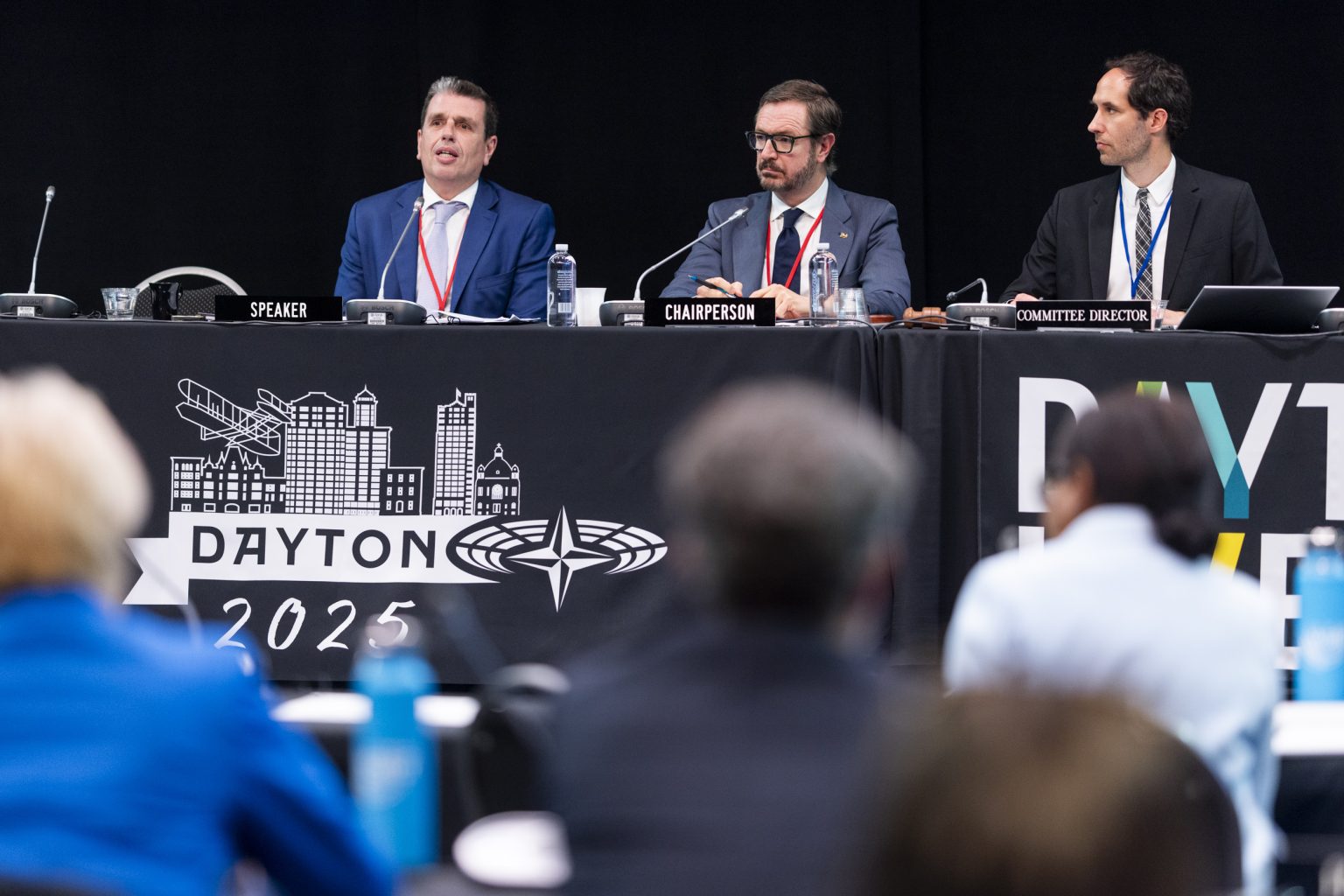Listen to the article
NATO lawmakers gathered in Dayton, Ohio on Saturday to address mounting concerns over Chinese disinformation campaigns and cyberattacks targeting democratic institutions across Alliance member states. The NATO Parliamentary Assembly emphasized the need for coordinated action against these growing threats that jeopardize election integrity and democratic values.
Greek lawmaker Dimitrios Kairidis presented a report highlighting how malicious actors are actively working to undermine elections, erode public trust, and “pave the way for the rise of anti-democratic sentiments and foreign interferences.” His assessment underscored that secure elections are crucial for national stability and collective resilience.
“Secure and credible elections are important to national stability, and thereby to collective resilience, making it imperative to address these threats,” Kairidis stated.
The report called for comprehensive threat assessments, contingency planning, and stronger legal frameworks to protect democratic processes. It specifically recommended that core election infrastructure be classified as “critical” to enhance security measures. Kairidis urged NATO members to strengthen their resilience against such threats and expand cooperation both within the Alliance and with like-minded partners.
Belgian representative Viviane Teitelbaum presented a separate report focusing on China’s expanding disinformation operations. Her findings revealed that Beijing’s tactics have evolved significantly in recent years.
“Chinese disinformation now aims to destabilize, discredit, and weaken NATO countries,” Teitelbaum warned. “With rapid technological innovations, infiltration of local media ecosystems, and growing cooperation with Russia, Chinese disinformation is spreading further and faster than ever before.”
To combat this threat, Teitelbaum’s report recommended enhanced monitoring systems, proactive communication strategies, and public education initiatives. It also pushed for legislative and regulatory measures to prevent the spread of disinformation while strengthening institutional resilience.
Both reports converged on the recommendation to establish a Centre for Democratic Resilience at NATO Headquarters to coordinate these efforts and foster collaboration with partners facing similar challenges.
The Assembly also addressed NATO’s growing cooperation with Indo-Pacific partners. Greek lawmaker Spyridon Kyriakis presented findings on the Alliance’s deepening relationships with Australia, Japan, New Zealand, and South Korea—collectively known as the Indo-Pacific Four (IP4).
“NATO’s evolving partnership with the IP4 is driven by the recognition of increasing cross-regional security challenges posed by the closer alignment of China, North Korea, and Russia,” noted Kyriakis’s report.
The document recommended expanding defense industrial cooperation with these partners, including developing common standards, improving interoperability between armed forces, sharing advanced technologies, and exploring joint production opportunities. It also proposed increased joint military exercises, regular Allied presence at regional bases, and coordinated communication strategies to counter disinformation about NATO’s activities in the Indo-Pacific.
Economic security concerns featured prominently in discussions as well. Dutch legislator Bart Kroon cautioned against trade disputes and tariff wars among NATO members, warning that such divisions could benefit adversaries like China.
Kroon’s report, presented to the Economics and Security Committee, stressed that economic fragmentation “could open new opportunities for powerful countries like China that do not share core democratic and free market values.” It noted that China and Russia already leverage significant influence in key sectors and “demonstrated a willingness to exploit this position for political ends.”
The Dutch lawmaker advocated for strengthened cooperation with partners and the private sector to reduce strategic dependencies in critical areas such as energy, food, and technology while maintaining economic openness among allies.
Turkish legislator Süreyya Önes Derici highlighted the importance of the Women, Peace and Security (WPS) agenda as United Nations Resolution 1325 approaches its 25th anniversary. Despite budget pressures facing some member states, Derici emphasized that WPS initiatives contribute directly to national security and support NATO’s core tasks.
“WPS enables Allied countries to leverage the full potential of their citizens—men and women alike—enhancing both the legitimacy and effectiveness of their political institutions and the operational capability and resilience of their armed forces,” Derici stated.
While institutionally separate from NATO, the Parliamentary Assembly serves as a vital link between the Alliance and member parliaments, fostering transparency and understanding of NATO policies among legislators and citizens. The Assembly will commemorate 70 years of parliamentary diplomacy throughout 2025.
Verify This Yourself
Use these professional tools to fact-check and investigate claims independently
Reverse Image Search
Check if this image has been used elsewhere or in different contexts
Ask Our AI About This Claim
Get instant answers with web-powered AI analysis
Related Fact-Checks
See what other fact-checkers have said about similar claims
Want More Verification Tools?
Access our full suite of professional disinformation monitoring and investigation tools



